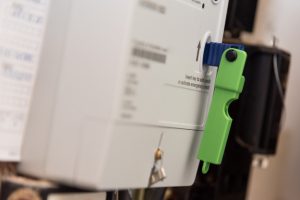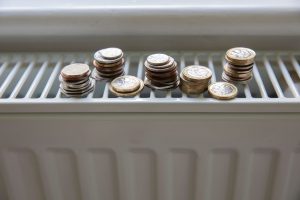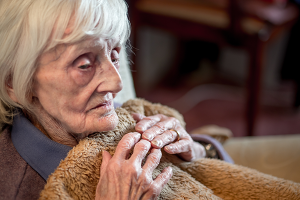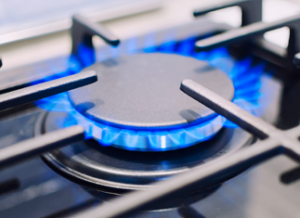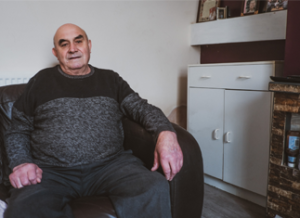- On Friday 1st April an average of over 22 million domestic energy customers across Great Britain will see their home energy bills soar by £700 per year to almost £2,000. An increase of over 54%.
- Fuel poverty charity National Energy Action (NEA) warns the cost of heating an average home has now doubled in 18 months, leaving 6.5 million households unable to live in a warm safe home across the UK.
- The charity claims the UK Government’s existing energy interventions overlook over 1 million of the most vulnerable households; left “without choices” and left out in the cold by underheating their homes, turning off lighting, falling further into debt or going without other essentials like food.
- With the UK Government recently ruling out further support until at least October, the charity says those on the lowest incomes, in debt or on a pre-payment meter are the hardest hit and urges the Chancellor to re-think his ‘wait and see’ policy which could cost lives.
Adam Scorer, Chief Executive of National Energy Action (NEA) says:
“This is the biggest energy price shock in living memory. Millions of people will be priced out of adequate levels of heating and power. For all the anticipation of these price rises, many people on the lowest incomes will be crushed by the reality.
“Quality of life for millions of people will plummet. Warm homes, cooked food, hot water, clean clothes – all cut back or cut out. Debt will spiral. Physical and mental health will suffer. This energy crisis is about to bite down hard on those least able to cope. Charities like NEA will try to pick up the pieces for those in greatest need. It will be a near impossible task.
“Last week, the UK Government chose not to prioritise support for those on the lowest incomes. It has crossed its fingers that the market will right itself. This ‘wait and see’ policy could cost lives next winter.”
The charity says soaring energy prices will rise by approx. £14.40 per week. This photo of a weekly shop illustrates how much shopping this buys and shows how much the households we help will struggle as the energy crisis will put a strain on their budgets.
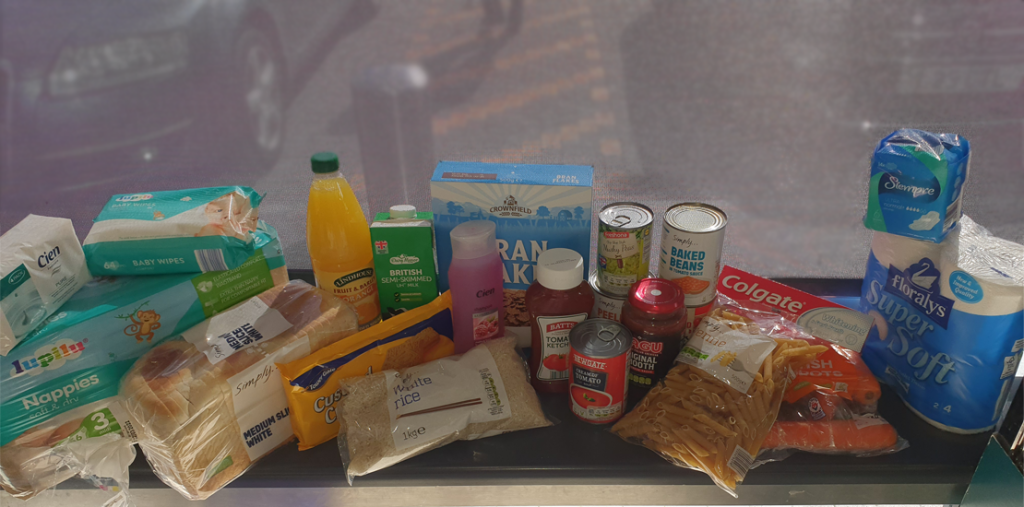
NEA is calling on people to sign this petition https://actionstorm.org/petitions/energycrisis to urge the UK Government to:
- Exempt vulnerable households, in particular prepayment energy users, from paying the £40/year levy that is currently planned to re-pay the ‘heat now, pay later’ £200 energy bill rebate.
- Provide additional support for low-income households ahead of next winter, for example through a bigger Warm Home Discount that directly supports more people, or by expanding the Winter Fuel Payment beyond pensioners.
- Develop a social tariff that is additional to current energy market protections, providing a below-cost energy price to low-income households
- Help to clear utility debts through starting a payment matching scheme, matching every pound that a household makes towards their utility debt repayments.
Adam concludes:
“More urgent support is needed from the UK Government. But also, over the coming months, there must be a coherent plan from government, energy sector, health bodies, local authorities and charities to support those at greatest risk next winter.
“Morally or financially, this is too costly for the UK Government to ignore. Public health experts have warned there is a damaging overlap between the health impacts of living in a cold home and Covid-19. As well as needless mental illness, pre-existing chronic medical conditions such as cardiovascular and respiratory conditions, chronic obstructive pulmonary disease, asthma and heart disease are also all badly affected by a cold home. Unless we act now this could create a public health emergency by next winter.”
ENDS
Notes to editors
- For further details please contact anna.cook@nea.org.uk or 07884 371913.
- National Energy Action (NEA) works across England, Wales and Northern Ireland to ensure that everyone in the UK can afford to live in a warm, safe home. For more information visit https://www.nea.org.uk/energy-crisis.
- NEA estimates that the number of households in fuel poverty across the UK will increase to 6.5 million households in total on the 1st April, an increase of more than 50% in just over six months. NEA has based its projections on the 10% definition of fuel poverty which gives a realistic picture of the scale of fuel poverty in periods of more volatile energy prices. Our projections are broadly in line with robust analysis by the Resolution Foundation surrounding ‘fuel stress’, which is also based on the 10% fuel poverty metric, but for England only.
- At the start of October 2021, NEA estimated 4 million households in the UK were in fuel poverty – struggling to afford to keep their homes warm and safe. Then, the GB-wide price cap was raised in October. Our estimates showed that an additional half a million households were then classed as fuel poor. Alongside similar unprecedented increases in Northern Ireland, the GB price cap is now being raised again from 1 April, a jump of an additional £700 per year to leave the ‘average’ domestic energy bills at ~£2000, leaving a further 2 million households in fuel poverty.
- Our 6.5 million estimates does not take account of the UK Government’s planned £150 Council Tax relief in April, nor the impact of this October’s £200 ‘heat now pay later’ rebate. This is because many low-income households are already exempted from paying Council Tax but still struggle with the cost of essentials, including energy. In addition, there is a long lag until October’s £200 ‘heat now pay later’ rebate kicks in, which could exclude 40% of pre-payment customers with older pre- meters and will need to be repaid by a higher standing charge. For these reasons, assuming a £350 deduction in average costs would currently be a very generous assumption, however, if this support was enhanced and could then be factored in, NEA estimates the number would reduce from 6.5 million households in fuel poverty across the UK, to 5.5 million.
- Our briefing highlights the options to reduce prices for vulnerable consumers and the possible benefits they would have for different low-income households. See: https://www.nea.org.uk/wp-content/uploads/2022/01/NEA-policy-briefing-supporting-vulnerable-energy-customers-this-winter-updated-260122.pdf
- National Energy Action estimated that when prices increased in October 2021, following the increase to the GB price cap, this generated HMT an additional £100m per year more VAT on domestic electricity and gas bills. Ofgem’s announcement increases push the VAT windfall up further and will increase VAT yields by in excess of £700 million per year. The amount of revenue Treasury receives from carbon revenue has also grown during the gas crisis, in addition to the £3 billion they were already due to receive for this year, the rising cost of permits/more volume of permit is netting HMT a further £1 billion until the end of April.









